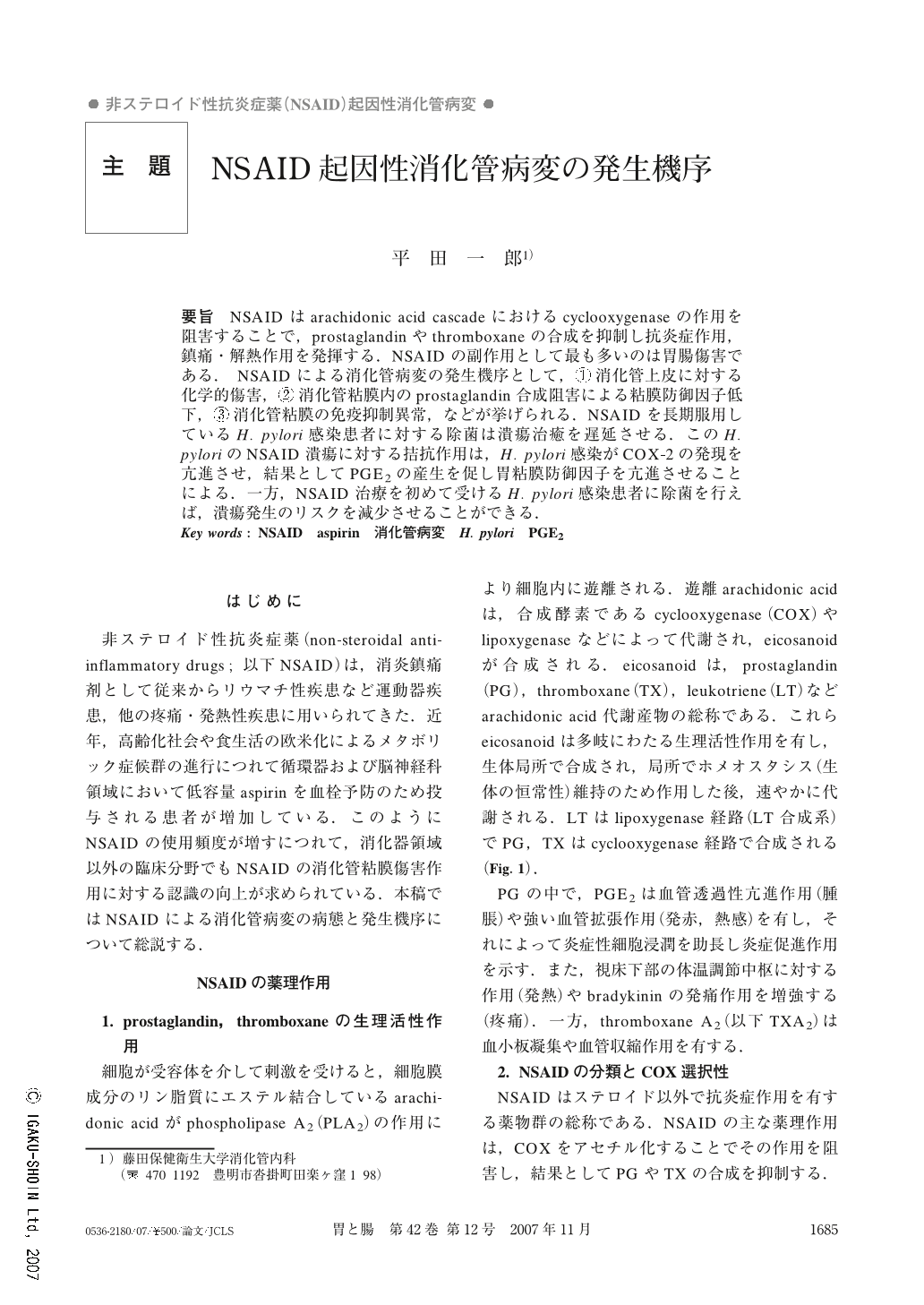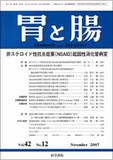Japanese
English
- 有料閲覧
- Abstract 文献概要
- 1ページ目 Look Inside
- 参考文献 Reference
- サイト内被引用 Cited by
要旨 NSAIDはarachidonic acid cascadeにおけるcyclooxygenaseの作用を阻害することで,prostaglandinやthromboxaneの合成を抑制し抗炎症作用,鎮痛・解熱作用を発揮する.NSAIDの副作用として最も多いのは胃腸傷害である.NSAIDによる消化管病変の発生機序として,①消化管上皮に対する化学的傷害,②消化管粘膜内のprostaglandin合成阻害による粘膜防御因子低下,③消化管粘膜の免疫抑制異常,などが挙げられる.NSAIDを長期服用しているH. pylori感染患者に対する除菌は潰瘍治癒を遅延させる.このH. pyloriのNSAID潰瘍に対する拮抗作用は,H. pylori感染がCOX-2の発現を亢進させ,結果としてPGE2の産生を促し胃粘膜防御因子を亢進させることによる.一方,NSAID治療を初めて受けるH. pylori感染患者に除菌を行えば,潰瘍発生のリスクを減少させることができる.
NSAID restrains the composition of prostaglandin and thromboxane by obstructing the action of cyclooxygenase in arachidonate cascade and shows anti-inflammatory activity, analgesia and antipyretic effect.
Most side effects of NSAID are gastrointestinal mucosal damage. The first stages of gastrointestinal lesions brought on by NSAID are, (1) chemical damage to the epithelium, (2) mucosal defence factor degradation due to a prostaglandin composition obstruction in the gastrointestinal mucosa, (3) immunologic inhibition aberration of the gastrointestinal mucosa.
Eradication of H. pylori infection in patients who have experienced long-term use of NSAID retards the ulcer healing. The antagonism for a NSAID ulcer of this H. pylori is due to upregulation of COX-2 expression by H. pylori infection resulting in promoting PGE2 production which enhances gastric mucosal defence factors. On the other hand, a H. pylori infection patient undergoing NSAID treatment for the first time can decrease the risk of ulcer outbreak if H. pylori is eradicate.

Copyright © 2007, Igaku-Shoin Ltd. All rights reserved.


